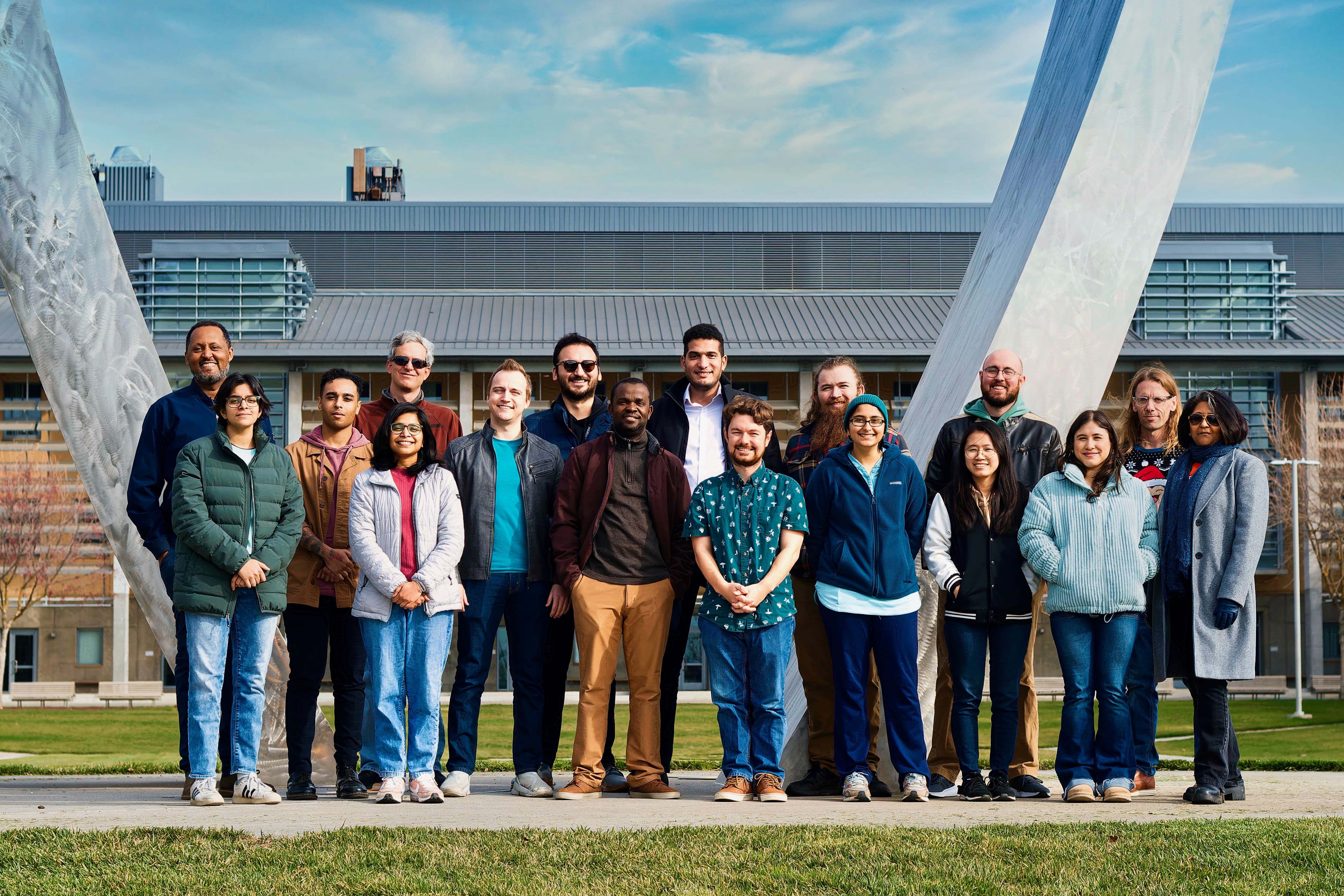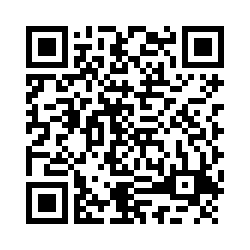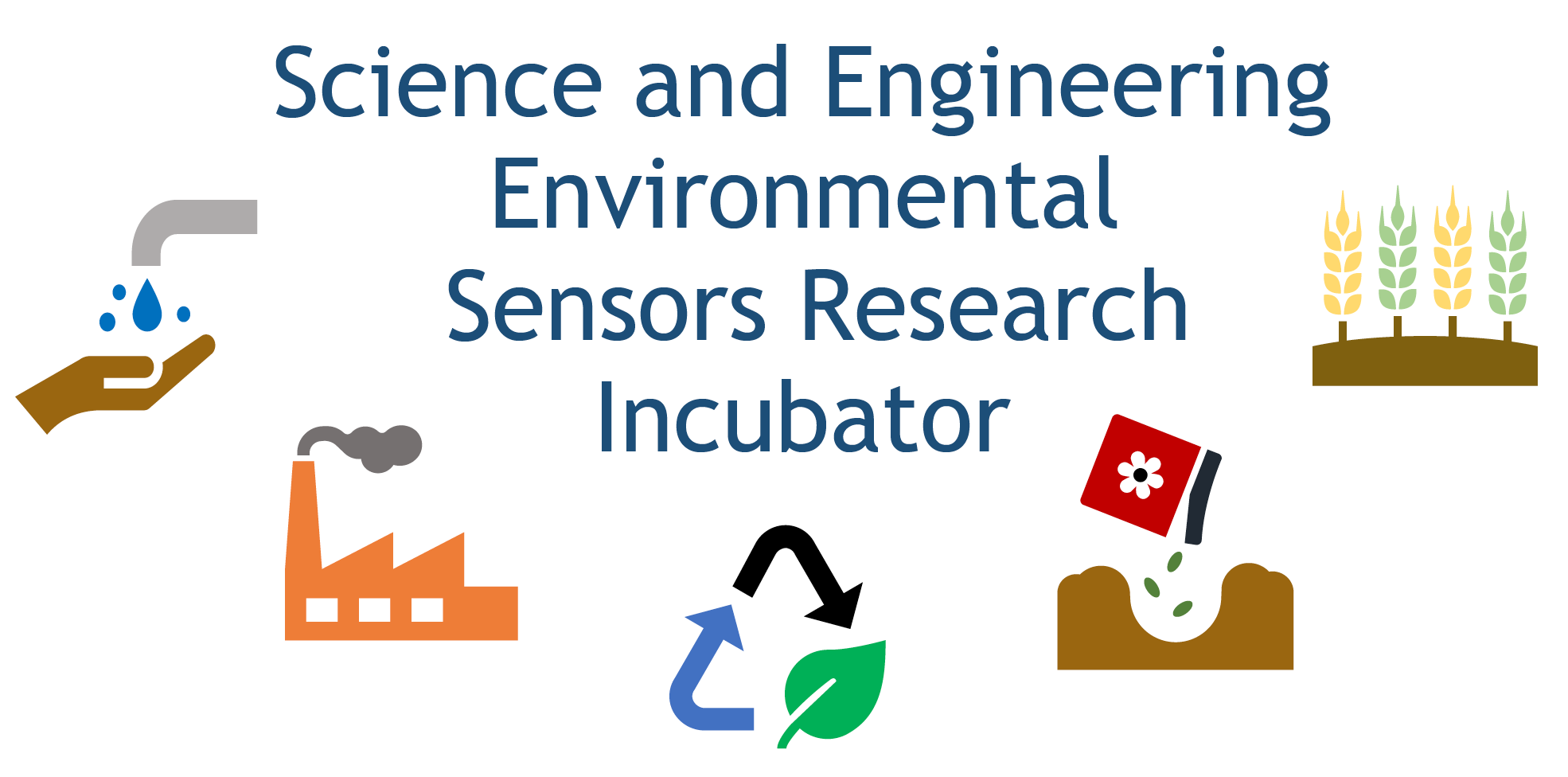
CONDESA’s 2024 Science and Engineering Environmental Sensors (SEES) Research Incubator brought together a diverse group of 13 graduate students from 5 different graduate programs (Physics, Mechanical Engineering, Materials and Biomaterials Science and Engineering, Environmental Systems, and Chemistry and Biochemistry) to learn about nanomaterials-enabled sensor development. The 2024 Incubator kicked off as a week-long event in January, prior to the start of instructions in the spring semester, where participants had the opportunity to engage in a series of lectures, and workshops to advance research on nanomaterials-enabled sensors. Lectures introduced them to some of the fundamental topics in nanoengineering, sensor development, data collection, as well as advanced concepts like quantum technology in the context of environmental sensing. Once the spring semester began, all participants met once a month with CONDESA faculty to engage in a series of hands-on projects in their labs. These varied from spectroscopy via measuring photoluminescence, to nitrate sensing in water samples. Another component of the Incubator involved attending the first ‘Materials Frontiers for Environmental Progress’ (MATFRONT) Conference at the UC Merced campus. MATFRONT was held in collaboration with the PREM Center at CSU Northridge and brought together universities and national laboratories to drive forward research and foster collaborations that can contribute to a sustainable future through innovative material solutions. The final component of the 2024 SEES Incubator includes a trip to Lawrence Livermore National Lab (LLNL) at the end of the fall semester. At LLNL students will not only gain exposure to cutting-edge facilities, scientists, and ongoing projects, providing them with insights into potential, real-world applications of their academic work, but also provide them with networking opportunities with leading researchers and potential collaborations, enhancing their career prospects.
The 2nd Science and Engineering of Environmental Signatures (SEES) incubator seeks to train a new generation of nano-engineers by offering effective training of STEM graduate students in high priority interdisciplinary or convergent research areas, including molecular biology, physics, chemistry, environmental science, and sustainable systems.
Incubator purpose:
The main goal of the SEES incubator is to allow participants from diverse graduate programs to engage in a series of workshops and seminars that will encourages the fusion of ideas, methodologies, and technologies from different domains, resulting in innovative solutions that wouldn't be attainable within the confines of a single discipline. This convergent approach will foster collaboration, encourage creative problem-solving, and allow the participants to be able to learn new scientific language that will let them transcend traditional boundaries when seeking their future career.
Program Details:
The incubator begins on Jan 8th, 2024.
| Dates | Description | Participant Requirement |
|---|---|---|
| January 8th - January 12th, 2024 | "Kick-off" with a 5 day program of lectures, workshops and social events. | Mandatory |
| February 2024 - April 2024 | Once a month group meeting with CONDESA faculty | Mandatory |
| February 2024 - April 2024 | Talks by external speakers invited as part of graduate programs' seminar series | Required: attendance at two talks |
| May 2024 | Trip to Lawrence Livermore National Lab | Optional |
| July 2024 | 2-day research symposium at UC Merced | Optional |
Application and funding:
All participants will receive travel funds between $500 - $1000, with only exceptions being funded CONDESA fellows and prior SEES participants.
Please use the QR code or this link for completing your application. We are open to ALL PhD students, including international ones!

Applications close November 20th, 2023. Selected participants will be notified by November 31st 2023 to allow adequate time for winter plans. Any questions? Email Zulema Avalos at zavalos2@ucmerced.edu.




